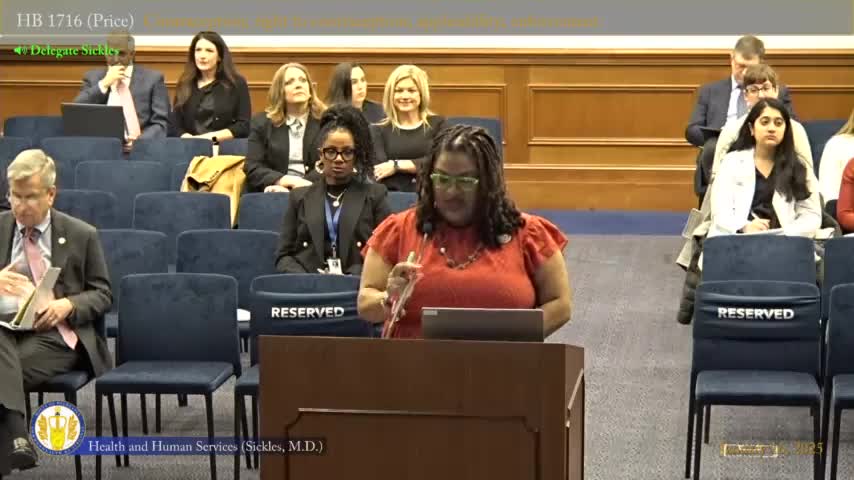House committee reports Virginia Right to Contraception Act to the floor after hours of testimony
Get AI-powered insights, summaries, and transcripts
Subscribe
Summary
A Virginia House committee voted 15-7 to report HB 1716, the Virginia Right to Contraception Act, to the full House after testimony from medical groups, patients and faith-based opponents about minors, provider scope and conscience protections.
A House committee voted 15-7 to report HB 1716, the Virginia Right to Contraception Act, to the floor after an hour-plus of testimony and questioning from members. The bill would bar state and local actors from restricting access to FDA-approved contraceptives and related clinical care.
Supporters told the committee the measure would protect established medical uses of contraceptives, including treating endometriosis and polycystic ovarian syndrome, and keep those decisions between patients and clinicians. Nicole Lauter, representing the American College of Obstetricians and Gynecologists, said, "We are fully in support of this legislation." Doctor Ivanti Jayavira of the Reproductive Health Access Project testified that contraception is often a medical treatment and said, "I need to be allowed to perform my job. I need to be able to practice medicine without any kind of interference." Several medical students and clinicians, and representatives from Planned Parenthood Advocates of Virginia, Progress Virginia and the League of Women Voters of Virginia, also spoke in favor.
Opponents raised concerns about how the bill defines who may provide care and the role of parental consent. Jeff Caruso of the Virginia Catholic Conference said the bill's definition of covered health professionals "includes pharmacist, dentist, optometrist, podiatrist, chiropractors, physical therapists, psychologists, social workers, marriage and family therapists, and others," and argued that scope could allow minors to obtain certain services without parental involvement. Caruso also said the bill's definition of contraception could encompass sterilization and that the measure could conflict with existing conscience protections.
Patron Sia Price, the bill sponsor, told the committee the bill would not change existing statutes on minors or replace current religious-conscience frameworks; she said the measure's purpose is to prevent state or local interference with access. After members questioned the language and heard from the public, Delegate Kathy Tran moved to report the bill to the floor; the motion carried on a vote of 15 yes and 7 no.
The committee hearing included multiple public witnesses who described clinical and family impacts of limiting contraceptive access and urged passage; witnesses included clinicians, a clinic worker and advocacy groups. The committee did not adopt technical amendments on the floor; the version reported is the bill as presented. The bill now goes to the full House for further consideration.
